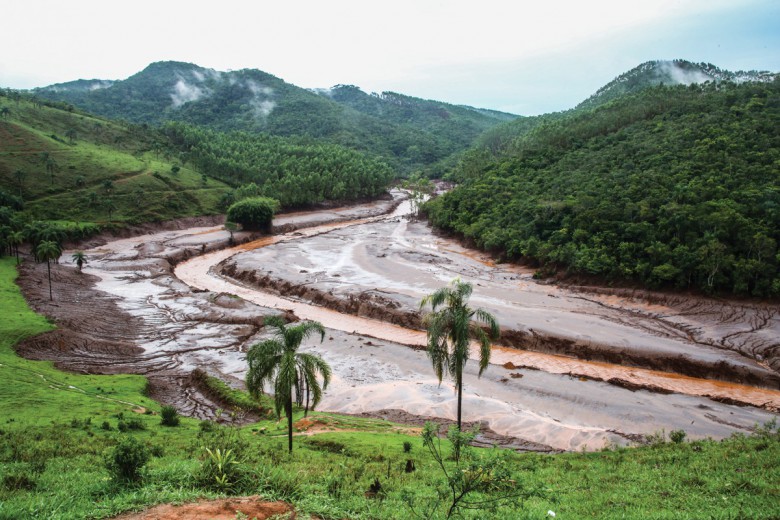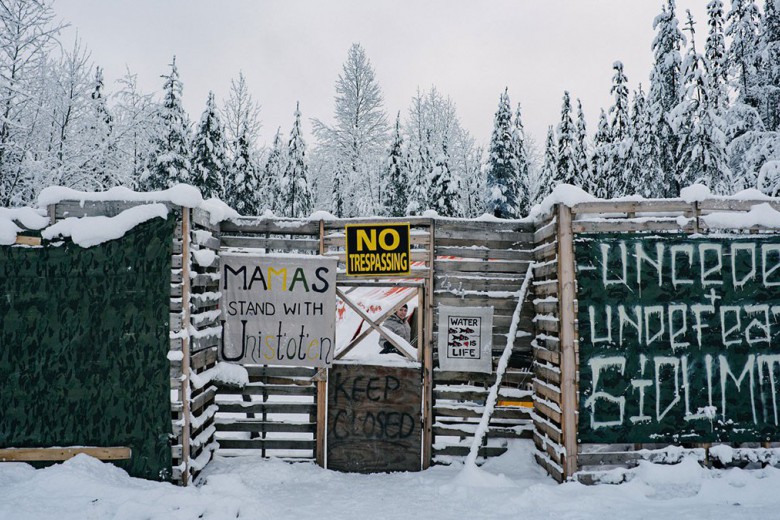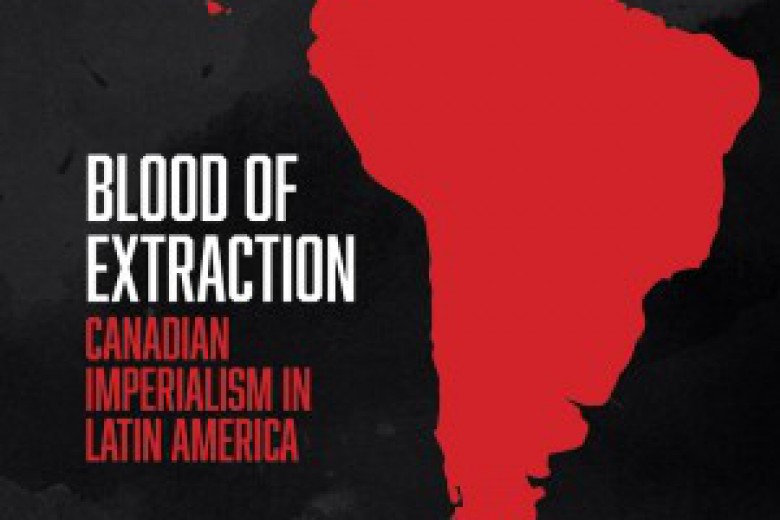Though Mexico was a punching bag throughout Donald Trump’s successful campaign to become president, his election wasn’t top of mind for many here in Mexico. Following the election, I’d meet friends and we’d talk about the latest news, the weather, and even our pets, before broaching the subject. It surprised me that an election that could impact so many seemed of little importance. A couple of weeks after Trump became president-elect, I participated in a forum at the public university in Puebla, Mexico’s fourth largest city. In a packed classroom, I and other panelists talked about the potential impacts of a Trump presidency.
It was then I realized that many Mexicans are not so surprised by the results of the U.S. elections. The current president of Mexico, Enrique Peña Nieto, shares some key qualities with Trump – namely a lack of scruples and a disregard for literature (a few years ago, Peña Nieto was asked to name his three favourite books and could only come up with “parts of” the Bible). During my presentation, I asked the audience, mostly graduate students, whether they knew about sanctuary cities or about “Dreamers,” people granted legal protections under Barack Obama after arriving to the U.S. undocumented at a young age. Both are under threat by the Trump administration. Few raised their hands.
In the weeks and months that have followed, we’ve gotten an idea of Trump’s style. Many have focused on his lack of decorum and his trigger-happy Twitter finger. But in terms of the lived reality in Mexico and much of Latin America, Trump represents continuity more than he does rupture with the policies of Obama. The war on drugs, a rise in immigration detention, and a highly militarized border are just a few of the ways this continuity is manifesting.
Since Trump’s election, Canada has come up from time to time, especially with respect to a potential renegotiation of the North American Free Trade Agreement (NAFTA), which has put downward pressure on wages in all three countries and has had particularly devastating consequences in Mexico. According to the Washington, D.C.-based Center for Economic and Policy Research, between 1991 and 2007, nearly five million family farmers have had to leave their lands, while poverty levels have climbed steadily. Trump’s flip-flopping on withdrawing from NAFTA has increased instability in Mexico and has weakened the peso, but pundits and economists alike have cast doubt on the possibility of a full-scale U.S. withdrawal from the agreement.
What is clear is that in terms of optics, the tables have turned: no longer do we have Stephen Harper to contrast with Barack Obama, who cultivated a “yes we can” populism.
Justin Trudeau lifted the visa requirement for Mexican visitors in an apparent reversal of Stephen Harper’s effort to keep Mexicans from claiming refugee status or asylum in Canada. But by March 9 of this year, the Canada Border Services Agency had detained 444 Mexicans, more than were detained in all of 2016. Canada has also refused to remove Mexico from the “safe” country of origin list, legitimizing the country as one that respects human rights, when in fact it is implicated in significant violations. A 2016 report by the International Human Rights Program at the University of Toronto’s faculty of law revealed damning evidence of discrimination and violence against LGBTQI people and people living with HIV in Mexico. The report’s first recommendation was: “If the Canadian government retains a Designated Country of Origin list, it should immediately remove Mexico from the list.” The recommendation has thus far gone unheeded.
What is clear is that in terms of optics, the tables have turned: no longer do we have Harper, a fundamentalist right-wing prime minister to contrast with Obama, who cultivated a “yes we can” populism. Instead, Trudeau’s mild progressivism and insistence on Canadian diversity and friendliness contrasts with Trump’s overt anti-Muslim and anti-immigrant stance. Trudeau’s sleek diplomacy and boyish charm have injected new life into the powerful myth that Canada is a good and benevolent nation. This myth rests on the foundational denial of ongoing Canadian colonialism and racism at home, and on the euphemisms of peacekeeping and the responsibility to protect, which mask imperialist intervention abroad. Recently, Trudeau took the floor of the UN General Assembly to proclaim that the challenges are great, “but we’re Canadian. And we’re here to help.”
As nice as the rhetoric sounds, the facts on the ground make clear that as official celebrations of Confederation’s 150th birthday get underway, Trudeau represents continuity just as much as his counterpart in the U.S.
When Mexico’s Peña Nieto visited Ottawa in June of last year, he and Trudeau jogged together in front of the press, and later stood before the cameras and promised deeper co-operation. Media buzz about the men’s “chemistry” overshadowed the nuts and bolts of their encounter. The two leaders issued a joint statement on economic growth, noting that the privatization of Mexico’s state oil company means new opportunities in the energy sector. Canada is working to influence emerging energy sector regulation in Mexico, and promised to “share best experiences on consultation and engagement to enhance participation of Indigenous communities in the energy sector.” The irony of the statement is not lost on anyone following conflicts between oil and gas companies and Indigenous peoples in Canada, from Elsipogtog in New Brunswick to unceded Wet’suwet’en territory in British Columbia.
Policing and military activities were also central to the bilateral meetings: Trudeau signalled Canada’s ongoing support for the so-called drug war in Mexico, which by a recent estimate has led to the disappearance of 300,000 people and caused the homicide rate to double over the past 10 years. Trudeau and Peña Nieto promised increased collaboration between the RCMP and the Mexican Federal Police, which, along with the army, has been the primary agency driving the militarization of the country under the pretext of the war on drugs. The Inter-American Commission on Human Rights noted that, in 2015 alone, the Federal Police massacred 16 civilians in Apatzingán, in the state of Michoacán, and participated in a suspicious confrontation in the same state in which 42 civilians and one officer were killed.
As I documented in my book Drug War Capitalism, the militarization of Mexico serves a purpose that has little to do with narcotics: the protection of Canadian mining projects. Federal police and soldiers have been used to break strikes and protect mining company officials. Canadian mining projects have been sites of violence on multiple occasions, and private security forces and hit men have killed a number of high-profile opponents in areas as diverse as northern Chihuahua near the U.S. border, and southern Chiapas near the border with Guatemala. Evidence has also emerged that Canadian resource extraction companies have co-operated with organized criminal groups. A 2012 report prepared by global accounting firm Deloitte estimated that 75 per cent of foreign mining investment in Mexico came from Canada. In the chilling words of Jennifer Moore from MiningWatch Canada, “Mexico is a graveyard and Canada is quarrying for headstones.”
Canada’s investment in extractive industries and generous supports for companies that provoke conflict have become mainstays of Ottawa’s foreign policy throughout Latin America. The corporatization of Canada’s foreign service is easy to discern. For example, Ottawa’s highest representative to Mexico, Pierre Alarie, has spent his career shuffling between diplomacy and Canada’s transnational business sector, having previously worked with Bombardier, SNC Lavalin, Hydro-Québec, the Caisse de dépôt et placement du Québec, and Bank of Nova Scotia.
“Canadian governments, over the last couple of decades, both Conservative and Liberal, have put Canadian profits over Latin American people,” asserts Jeffery R. Webber, senior lecturer in the school of politics and international relations at Queen Mary University of London, and co-author, with Todd Gordon, of Blood of Extraction: Canadian Imperialism in Latin America. “This is systematic and structural behaviour on the part of the Canadian state, not a question of a few bad apples in this or that Canadian ministry.”
A younger, more handsome, face at the head of Parliament does nothing to transform this reality. As in Mexico, mining has been at the centre of conflicts involving Canadian companies and local communities throughout the hemisphere. In Guatemala, for example, mining conflicts continue to rage in various regions of the country, often involving Canadian corporations. As high-profile lawsuits regarding the deadly conduct of mine security workers wind their way through the courts in Toronto and Guatemala City, local activists continue to risk their lives in defence of the land.
I asked Guatemalan analyst Luis Solano to describe the essence of relations between Canada and Guatemala today. “Starting from the directory of the Canadian-Guatemalan Chamber of Commerce, one sees that the relations are established fundamentally by Canadian oil and mining investments in Guatemala. Connected to these investments are another group, including companies dedicated to transportation, law firms, banks, and companies that carry out environmental impact studies,” Solano told Briarpatch. “And the Canadian Embassy plays a central role in these relationships and alliances, by promoting and strengthening these connections.”
The kinds of networks and overt support for the extractive industries Solano mentions are present not only in Mexico and Central America, but throughout South America and the Caribbean. Free trade agreements have been signed between Canada, Peru, and Colombia, and have led to increased Canadian investment in the extractive industries of both countries. Calgary-based energy firms, including Gran Tierra Energy, Petrobank (since acquired by Touchstone Exploration), and Parex Resources, dominate Colombia’s oil sector, and oil exploration and production has been militarized at the expense of local communities. In the southern state of Putumayo, where Gran Tierra Energy is active, at least one tenth of the residents have been forcibly displaced from their lands.
It is clear that Canada’s reach goes beyond mining, and includes political support for right-wing regimes and chilled relationships with progressive governments. “Concretely, that has meant Canadian diplomatic support for the repressive post-coup regime in Honduras, ideological backing of the often murderous regime in Colombia, interference in the domestic affairs of countries governed by left-wing parties, such as Ecuador and Venezuela, and the systematic undermining of popular environmental, Indigenous, and peasant resistance to the harmful presence of Canadian companies,” wrote Webber in an email to Briarpatch. Already, Trudeau’s government has joined the U.S. in criticizing Venezuela’s government, while propping up questionable anti-corruption efforts in Honduras.
Canada’s reach goes beyond mining, and includes political support for right-wing regimes and chilled relationships with progressive governments.
But it is mining that remains the single most contentious aspect of Canada’s corporate presence in Latin America. “Canada moved from being a relatively minor player in the region 25 years ago, to being a pivotal economic force today,” according to Webber. “Canadian investments, particularly in mining, have been associated with widespread and systematic abuses of human rights and ecological disaster.”
Peru is a key recipient of Canadian investment, and has long been a site of Indigenous and peasant community resistance to extractive projects. Many of those struggles have been successful, and activists there offer valuable insight for Canadians working to push beyond the Trudeau government’s empty performance of multiculturalism and greenwashing. “In Cajamarca, there are various mining projects that they are trying to get off the ground, and Canada is always held up as the example of how mining can be done well,” said Milton Sánchez, a community activist with the Interinstitutional Platform of Celendín, in the province of Cajamarca.
“We have realized that in Canada these mining projects really do cause damage to communities,” he said. The big lessons, which activists like Sánchez have learned through participating in resistance movements within their communities, have to do with the global nature of their fight. Exposing Canada’s true role may be particularly important as the Canadian government has been attempting to portray itself as a more progressive, positive force than its southern neighbour. “From here in the south, we now know that the model of growth based on extractivism is a threat that doesn’t distinguish between a rich country or a poor country, or whether they come from governments who are on the left or on the right,” Sánchez told Briarpatch. “These projects put the survival of all of our communities at risk.”







